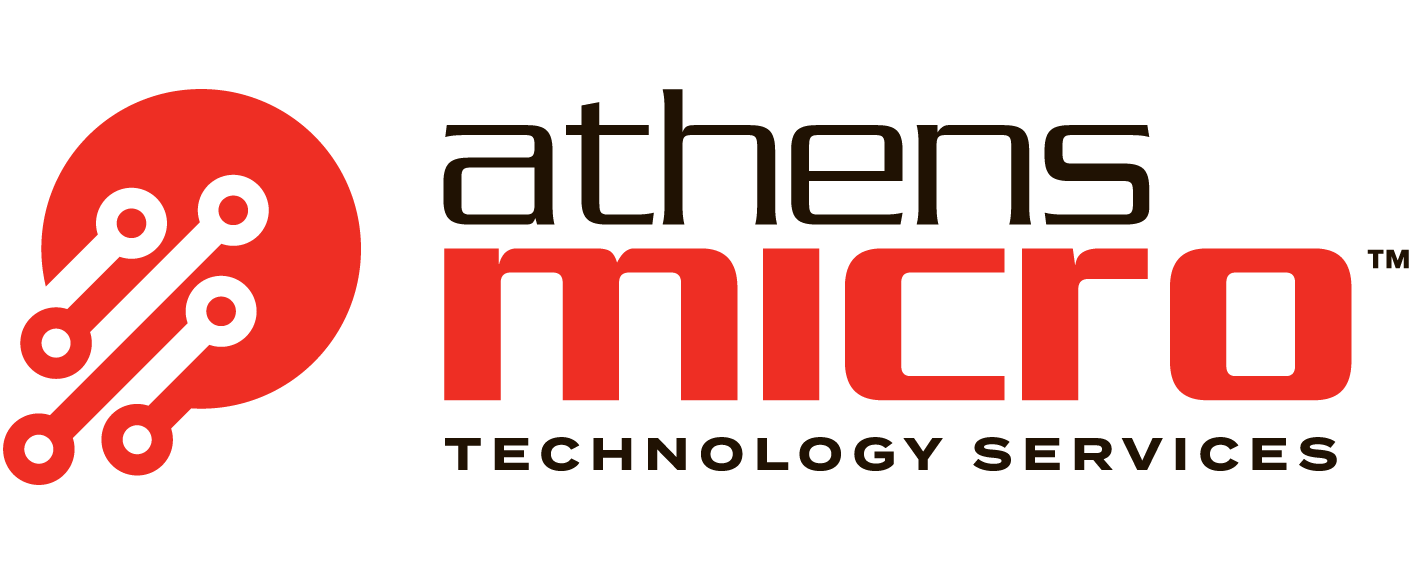DevOps, merging development and operations, represents a cultural revolution in software development and IT logistics. It’s more than a set of practices – it’s a paradigm shift towards unifying software creation and operational strategies. This integration is vital for any business aspiring to enhance agility, improve product quality, and align with modern digital demands.
DevOps is not just about streamlining processes; it’s a transformative approach that revolutionizes how businesses operate in the digital age. By combining development and operations, DevOps creates a collaborative environment that accelerates software development and ensures that every update aligns with business goals. It’s a cultural shift that breaks down silos between teams, promoting a shared sense of responsibility and fostering open communication.
At Athens Micro, we want to equip you with the tools necessary to take your business to the next level. We get it–the tech world can be confusing. We’re here to make it simple. Read along as we discuss DevOps and how it may benefit your company.
Why DevOps Matters for Today’s Businesses
DevOps is crucial for contemporary enterprises, offering a competitive edge through rapid software updates, increased efficiency, and consistent quality. It’s not just an IT strategy; it’s a holistic business approach essential for improving customer satisfaction and achieving cost-effectiveness.
In today’s fast-paced business landscape, responding quickly to market changes and customer demands is crucial. DevOps enables businesses to do just that by accelerating software delivery and updates. This speed becomes a significant competitive advantage, allowing companies to innovate faster and stay ahead of competitors. Moreover, DevOps reduces manual tasks and inter-departmental delays, increasing overall efficiency.
Understanding the Core Principles and Practices of DevOps
At the core of DevOps are principles like a collaborative culture, embracing automation, Continuous Integration and Delivery (CI/CD), Infrastructure as Code (IaC), continuous monitoring, microservices architecture, and Lean and Agile practices. These elements work together to enhance IT performance and overall business efficiency.
- Culture of Collaboration: DevOps dismantles traditional walls between development and operations teams. It fosters a culture of collaboration and shared responsibility, enhancing communication and integration across all stages of the delivery process. This collaborative spirit extends beyond teams to include all stakeholders, ensuring everyone is aligned and moving towards a common goal.
- Embracing Automation: Automation is fundamental in DevOps. From code integration testing to deployment, automating these processes reduces the likelihood of human error and accelerates delivery times. Automation extends to monitoring and alerting, ensuring that any issues in the system are promptly identified and addressed.
- Continuous Integration and Delivery (CI/CD): CI/CD is the cornerstone of DevOps. Continuous Integration involves merging all developers’ working copies to a shared mainline several times a day, preventing integration problems. Continuous Delivery follows this by ensuring that the code is always deployable, enabling rapid and reliable software release cycles.
- Infrastructure as Code (IaC): IaC allows teams to manage infrastructure using configuration files, reducing manual configuration errors and streamlining the process of setting up and tearing down servers or environments. This practice not only saves time but also ensures consistency across different environments.
- Continuous Monitoring and Feedback Loops: DevOps encourages constant monitoring of applications and infrastructure to identify and rectify issues quickly. Feedback loops are integral, promoting continual learning and improvement based on operational performance and user feedback.
- Microservices Architecture: Adopting a microservices architecture complements DevOps by allowing teams to independently develop, deploy, and scale parts of an application. This approach reduces complexity and facilitates faster updates.
- Lean and Agile Practices: DevOps incorporates lean and agile principles, focusing on eliminating waste, accelerating delivery, and creating value for the end-user. These practices emphasize the importance of adaptive planning, evolutionary development, early delivery, and continual improvement.
These core principles and practices form the foundation of DevOps and provide organizations with the tools to enhance not just their IT department’s performance but also the business’s overall efficiency and market responsiveness. DevOps is a journey of continuous improvement and adaptation, and embracing its core tenets is essential for any organization looking to stay competitive in today’s fast-paced market.
Assessing DevOps Suitability for Your Organization
To determine if DevOps fits your business, evaluate your current processes, work culture, business goals, technical infrastructure, resource availability, scalability needs, and the competitive landscape. DevOps is ideal for companies aiming for rapid growth, flexibility, and innovation. Assess and answer the following questions:
- Are Your Current Processes Streamlined?
Look at your software development and IT operations. Are there delays or bottlenecks that could be alleviated through improved collaboration and automation? If your current processes are slow, error-prone, or inefficient, DevOps could offer significant improvements.
- Is Your Work Culture Ready?
DevOps is as much about culture as it is about tools and processes. Assess whether your team is ready to embrace a culture of collaboration, continuous improvement, and learning. Successful DevOps implementation requires buy-in at all levels, from management to frontline staff.
- Do Your Business Goals Align?
Consider your strategic objectives. Are you looking to accelerate time to market, improve service quality, enhance customer satisfaction, or reduce costs? DevOps directly supports these goals by streamlining processes, improving reliability, and fostering innovation.
- What is Your Technical Infrastructure Like?
Evaluate your current technical infrastructure. Are your systems and technologies compatible with the agile, automated, and collaborative nature of DevOps? While DevOps can often be adapted to a wide range of environments, some infrastructural changes might be necessary.
- Do You Have Resources?
Do you have the skills and resources needed to implement DevOps, or are you willing to invest in training and possibly hiring? While DevOps can lead to long-term cost savings and efficiency gains, it requires an initial investment in skills development and tooling.
- What are Your Scalability and Flexibility Needs?
If your organization is growing or facing fluctuating demand, consider how DevOps can provide the scalability and flexibility you need. The ability to rapidly deploy and scale applications is a key benefit of DevOps practices.
- What is the Competitive Landscape?
Finally, consider your industry and competitive landscape. In sectors where speed and innovation are critical, DevOps can provide a competitive edge by enabling you to move more quickly and adaptively than your competitors.
If, after considering these factors, you find that DevOps aligns with your needs and goals, it may be time to start planning your transition. This will involve further steps, including detailed assessments, strategy development, and possibly partnering with a service provider who can guide you through the process.
Conclusion: Embracing the Future with DevOps
DevOps is key to staying competitive and innovative. It’s about advancing your entire business strategy in a dynamic market. It symbolizes a cultural shift that unifies software creation and IT logistics to enhance business agility and product quality. This approach accelerates the development lifecycle, ensuring faster feature deployment and consistent updates aligned with business goals. At its heart, DevOps promotes a collaborative culture, integrating previously siloed teams and automating processes to minimize errors and free up valuable time.
Athens Micro
At Athens Micro, we understand pivotal role of custom cloud solutions and managed services in modern business operations. With over 40 years of experience partnering with businesses across Georgia, we are committed to helping you navigate the complexities of digital transformation. We believe your technology should work for you, enhancing efficiency and driving business success. Our tailored approach to IT solutions will ensure your business is equipped with the right strategies and tools, allowing you to focus on growth and innovation. Together, let’s build a future that’s agile, robust, and aligned with your vision of success. Ready to get started? Schedule your discovery call with our team today and take the first step towards a more innovative and efficient future.

